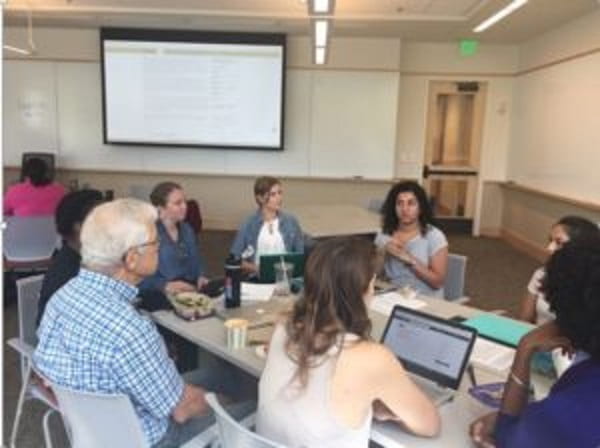Written by Linda Raclin, JD, LLM, senior lecturer professor at the Brown School
In a growing number of cities and counties across America, being poor is itself a crime. As many of us in the St. Louis region witnessed during the civil unrest in Ferguson, individuals and minorities in low-income communities are often targeted for low-level offenses (e.g., broken tail lights, unpaid parking tickets, sleeping on a park bench, etc.) and assessed fines and fees that they cannot afford, ultimately resulting in jail time. These individuals may find themselves with arrest warrants or criminal convictions that inhibit their ability to find jobs and housing. Without the ability to find a place to work or a place to live, they are unable to satisfy their basic needs of food, clothing and shelter; their stress levels are increased, often to levels of toxic stress, and their overall health is compromised.
The myriad ways in which the law makes it a crime to be poor is utterly inequitable, and poses health challenges to vulnerable populations.
In Missouri, the nonpayment of child support can be a misdemeanor or a felony, even though 70% of child support arrearages are owed by noncustodial parents with no income or with incomes under $ 10,000. Low income, destitute individuals can be arrested and saddled with a criminal record for sleeping or camping in public. Low-income and minority youth are quickly channeled into the criminal justice system through the school-to-prison pipeline, a process well documented by the U.S. Justice Department’s investigation into the St. Louis County Family Court.
So many of these vulnerable individuals find themselves highly likely to interact with the criminal justice system, simply by virtue of the amount of money in their bank accounts. A criminal justice encounter that results in an arrest or criminal conviction will have lasting consequences, and will dramatically impact an individual’s ability to obtain housing and employment.

In a transdisciplinary course offered at The Brown School, students in the Masters in Public Health Program (“MPH”) are working to assist area lawyers at Arch City Defenders to challenge law enforcement and court practices that unfairly penalize low income individuals. By applying their social science research skills, these students are able to help document the grave poverty in which many of Arch City Defenders’ clients exist, rendering them completely unable to pay court fines of hundreds of dollars, or living in life circumstances (such as homeless shelters, often with young children) that make performing long hours of community service virtually impossible.
These clients are emblematic of many other low income individuals that are living in similar circumstances, and that could very well face similar court proceedings for very minor infractions. By working in concert with Arch City’s lawyers, the Brown students will show the courts that excessive fines or extensive community service obligations that may be imposed on on extremely low income populations are “excessive” sentences that violate the Eighth Amendment.
Other solutions may lie in “ban the box” laws that have been adopted in some jurisdictions (including St. Louis City and the State of Missouri) that prohibit employers, usually in the public sector, from discarding applicants with criminal backgrounds in the first round of job consideration. However, these laws are a far cry from a complete solution to the problem. In fact, some early research shows that “ban the box” laws have actually worked to the detriment of racial minorities, and caused employers to have a distinct preference for Caucasian applicants, if they are forced to interview applicants without a criminal background check.
The real solution lies in more equitable treatment of low income and minority populations. If citations need to be issued for minor violations, they should be issued, but treated as civil violations where possible. In addition, area law and court personnel should respect the laws of the U.S. and Missouri Supreme Court and refuse to jail individuals for their failure to pay sums owed.
The public health of St. Louis, and its entire community, is at stake.